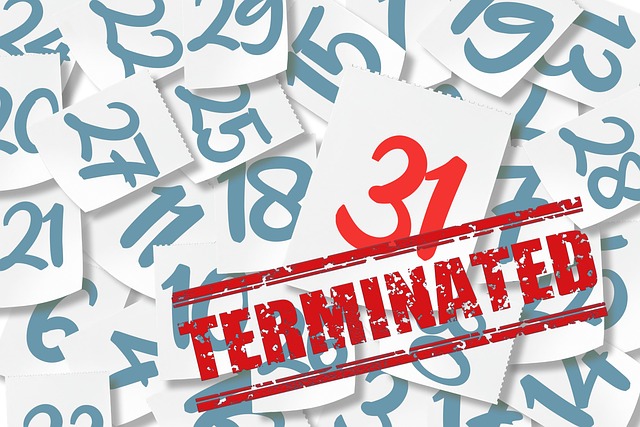Oregon's child support laws prioritize financial stability for children post-separation or divorce, with a well-defined process for legal support enforcement. Parents can seek unpaid support from non-custodial parents by filing a petition, proving willful failure to meet obligations, and following DHS-led procedures. The system grants both rights and responsibilities, ensuring efficient obligation fulfillment while protecting children's well-being. Navigating this system effectively leads to positive outcomes, like improved financial stability and quality of life for families.
In Oregon, effective child support enforcement is crucial for ensuring financial stability for children. This article navigates Oregon’s legal support enforcement procedures, offering insights into understanding state laws, initiating actions, and collection processes. We explore the roles of various agencies, parents’ responsibilities, and available defense options. Additionally, we feature success stories that demonstrate effective navigation of Oregon’s enforcement system, providing valuable guidance for all involved.
- Understanding Oregon's Child Support Laws
- Initiating Enforcement Actions: Who Can File?
- The Collection Process: Agency Roles and Rights
- Parents' Responsibilities and Defense Options
- Success Stories: Navigating Oregon's Enforcement System Effectively
Understanding Oregon's Child Support Laws

Oregon’s child support laws are designed to ensure financial stability for children after a separation or divorce. Understanding these laws is crucial for both parents as it outlines their responsibilities and rights regarding financial contributions for their offspring’s well-being. The state has established procedures for legal support enforcement to guarantee that non-custodial parents fulfill their obligations, ensuring children receive the necessary resources for their growth and development.
These laws consider various factors when determining child support amounts, including each parent’s income, the time spent with the child, and the overall cost of raising a family. Oregon’s Department of Revenue plays a vital role in administering these laws by facilitating negotiations, collecting payments, and enforcing compliance to uphold the best interests of the child.
Initiating Enforcement Actions: Who Can File?

In Oregon, initiating legal support enforcement actions for child support is a structured process with clear guidelines. Any person who has a legitimate interest and meets specific criteria can file a petition to enforce child support payments. This typically includes parents or legal guardians who are seeking unpaid support from the non-custodial parent. The process begins by filing a motion or petition with the appropriate court, providing evidence of the existing child support order and details regarding the non-compliance.
The petitioner must demonstrate that the non-custodial parent has willfully failed to meet their financial obligations as outlined in the court order. This can be achieved through documentation such as missed payment records, notices of default, or other relevant proof. Once filed, the court will review the petition and issue a summons, officially notifying the respondent of the enforcement action.
The Collection Process: Agency Roles and Rights

In Oregon, the collection process for child support enforcement involves several key players and procedures designed to ensure financial responsibility for children’s well-being. The state’s Department of Human Services (DHS) plays a central role in administering and enforcing child support orders. They utilize advanced systems to track payments, manage cases, and locate non-paying parents or guardians. When a parent falls behind on their support obligations, DHS serves legal notices, enabling them to take further actions under Oregon’s established legal support enforcement procedures.
Oregon law grants certain rights and responsibilities to all parties involved in the process. Parents or guardians have the right to understand and challenge the amount they owe, as well as appeal any collection efforts they perceive as unjust. Conversely, DHS is entitled to access relevant financial information, issue subpoenas for records, and pursue legal avenues to secure payment, including wage garnishments, bank levies, and driver’s license suspensions. This multifaceted approach ensures that all obligations are met efficiently while protecting the rights of both parents and the child(ren) they support.
Parents' Responsibilities and Defense Options

In Oregon, both parents have a legal responsibility to support their children financially. This includes providing for their basic needs such as food, clothing, and shelter. When a parent fails to fulfill this obligation, the other parent or guardian may seek legal support enforcement procedures to ensure the child’s financial security. These procedures are designed to encourage parents to meet their obligations and provide a structured approach to resolving unpaid child support.
There are defense options available for parents facing legal support enforcement actions. These defenses can include challenging the amount of support requested, asserting that the other parent has also failed to adhere to a parenting plan, or proving that significant changes in circumstances have occurred since the original support order was established. Understanding these defenses and the specific steps to raise them is crucial as it can significantly impact the outcome of a child support enforcement case.
Success Stories: Navigating Oregon's Enforcement System Effectively

In Oregon, successful navigation of the child support enforcement system often leads to positive outcomes for families involved. Many individuals have found themselves on a path to financial stability and improved quality of life through effective legal support enforcement. The state’s dedicated agencies and resources play a pivotal role in this process, offering guidance and assistance tailored to each unique situation. From understanding one’s rights and responsibilities to accessing available programs and benefits, these supportive systems empower parents to meet their obligations efficiently.
One such success story involves a single parent who, after years of struggling to make ends meet, discovered the resources Oregon provides for child support enforcement. With the help of legal professionals and state-funded programs, they were able to establish a structured plan to manage their financial duties. This not only alleviated the parent’s stress but also ensured their children’s well-being and access to necessary resources. Such positive outcomes highlight the effectiveness of Oregon’s approach to legal support enforcement, demonstrating its impact on transforming lives for the better.






